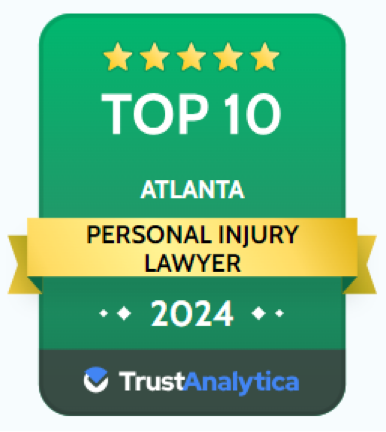All information provided about the law is very general in nature and should not be relied upon as legal advice. Every situation is different and should be analyzed by a lawyer who can provide individualized advice based on the facts involved in your unique situation, and a consideration of all of the nuances of the statutes and case law that apply at the time.
Does Workers Comp Cover Pre-Existing Conditions?
Yes, it is possible to get workers’ compensation benefits for injuries that make pre-existing conditions worse. According to O.C.G.A. § 34-9-1(4) (2024), a covered injury includes the aggravation of a pre-existing condition that occurs while an employee is performing their job. This coverage applies for as long as the injury is the cause of the employee’s disability and ends when the aggravation of the pre-existing condition no longer causes disability. If work or an accident at work aggravates a pre-existing condition, employees should immediately notify their employer and seek medical treatment.
While the law does provide some coverage, employers and insurance companies may contest claims that involve a pre-existing injury aggravated at work. That’s why having dedicated workers’ comp attorneys in your corner can make all the difference for a workers’ compensation claim. They can help you regain a sense of normalcy in your life after an insurance company attempts to deny you benefits for a pre-existing condition workers compensation claim.
What Is Considered a Pre-Existing Injury?
An essential consideration in any aggravation of a pre-existing condition workers’ compensation claim is what counts as a pre-existing condition. Many Georgians, like many Americans, have some type of long-term condition or illness. By some estimates, 50% of Americans have a pre-existing condition like cancer, diabetes, or asthma.
But simply having a medical diagnosis, past injury, or condition does not automatically make these pre-existing conditions for the purposes of a workers’ compensation claim. The relationship between the injury, the accident, and the claim determines whether the condition is pre-existing.
In some instances, the workplace injury aggravates the pre-existing condition and in other cases, the pre-existing condition and injury are entirely unrelated. For example, having a condition like asthma will likely be unrelated to a broken bone, but may be considered a pre-existing condition if the workplace accident affects the lungs.
Common Conditions in the US
As mentioned, many Americans have some chronic or long-term health condition that could factor into an aggravation of a pre-existing condition workers’ compensation claim. According to a report by the Department of Health and Human Services, there are several conditions considered common among the US population. These include:
- High Blood Pressure
- High Cholesterol
- Asthma or Chronic Lung Disease
- Heart Conditions
- Diabetes
- Cancer
Pre-Existing Injury
In addition to chronic health conditions, workers may also have injuries they’ve previously sustained. If the injury was not sustained through work, it typically does not give rise to a pre-existing injury workers’ compensation claim unless the pre-existing injury was made worse by the new work related injury. Additionally, if a worker sustains an injury doing “light duty” while recovering from a previous workplace injury, this can impact a workers’ compensation.
History of Workers’ Compensation Laws
Before states enacted workers’ compensation laws, employees often relied on mutual benefit societies through churches, unions, and other organizations to provide the support injured workers and their families needed. If these community supports were not available or insufficient, workers pursued litigation against their employers when they were injured or disabled at work. In these cases, when a pre-existing injury became aggravated, employers would attempt to argue that they should not have to pay for the costs associated with the aggravation.
However, those employers ran into an important legal doctrine known as the eggshell skull rule. The doctrine dates back well over a century and states that a defendant is liable for all the damages their act legally and proximately causes. This includes damages that are disproportionate to the act in question because the injured person is unusually sensitive to the danger. If you hit someone on the head lightly, but they have an “eggshell skull,” you’re liable for all the damages that result, even if in ordinary circumstances the damage would be minimal, if any.
Because workers’ compensation coverage evolved from and out of these doctrines, the workers’ compensation statute treats pre-existing conditions similar to how courts treated the “eggshell plaintiff.” The employer’s workers’ compensation insurer can’t escape liability because the injuries sustained wouldn’t exist or be as bad if not for the pre-existing condition. However, Georgia law does distinguish between:
- Compensable aggravation of a pre-existing condition (covered).
- Purely pre-existing conditions that are not worsened by a work injury (not covered).
For example, if an employee had degenerative back disease but a work incident made it symptomatic or worse, that aggravation is typically compensable. However, if symptoms arise solely from natural progression of the disease without a work-related aggravation, benefits may be denied. Therefore, a pre-existing condition does impact a workers’ compensation claim, but it doesn’t bar recovery when work contributed to the worsening.
Pre-Existing Conditions Workers Compensation Coverage
If an accident or injury sustained while working aggravates a pre-existing condition or injury, workers’ compensation can help the injured worker receive compensation for their necessary medical treatment, lost income, or difference in income they suffer as a result. However the relationship between the pre-existing condition, the accident, and the injury determines what coverage is available and how much.
When You’re Hurt More Than Once at Work in Georgia
If you’ve already had a work injury in Georgia, you may wonder what happens if you get hurt again after you go back to your job. Georgia’s workers’ compensation law has specific rules for this situation, and the good news is that you may still be entitled to benefits.
To qualify, a few things must happen:
- You were hurt at work and filed a valid workers’ compensation claim.
- You were eligible for income benefits for that injury.
- You later returned to work.
- While back at work, you were injured again — either by a new accident, by your old injury flaring up because of job duties, or by your prior injury worsening after you stopped working.
In these cases, the law looks at the date of injury that applies and makes sure your income benefits are calculated correctly. Importantly, Georgia law says you’re entitled to the maximum benefits available for the injury that provides you with the most protection — often the higher benefit amount or longer coverage period.
Pre-Existing Injuries and Disability Benefits
Sometimes a work accident makes an old injury or health problem worse. Georgia law (O.C.G.A. § 34-9-241(b)) says that if you already lost the use of a body part — or part of it — before your new work injury, you can still get permanent partial disability (PPD) benefits. However, you can only receive benefits for the additional loss or damage caused by the new injury, not for the part you had already lost before.
Total Disability Benefits in Georgia
If a new work injury combines with a pre-existing condition and leaves you totally unable to work, Georgia law allows you to receive total disability income benefits. Under O.C.G.A. § 34-9-261, these benefits equal two-thirds of your average weekly wage before the injury, up to a maximum of $800 per week.
In most cases, these benefits can continue for up to 400 weeks from the date of your injury. However, if your injury is classified as
It can be difficult to understand and make sense of these limitations on coverage and when and to what extent you’re still eligible for benefits. That’s why it’s often best to speak with an experienced workers’ compensation attorney who can help you make sense of what benefits you’re eligible for. If those benefits are denied, they can help fight to ensure you receive them.
Aggravation Of A Pre-Existing Condition Workers Compensation
There are other cases where an injury may become worse due to a pre-existing medical condition. For example, arthritis affects over 20 million working age Americans. For these Americans, the demands of many jobs can negatively affect their health and even lead to injuries. Industries like service, transportation, production, and healthcare are all physically demanding and are the industries that account for the most workers’ compensation claims.
For employees with chronic health conditions like arthritis, speaking with a trusted attorney can help prepare them for the road ahead. While Workers’ Compensation Insurance companies cannot use the presence of arthritis to deny the claim altogether, that doesn’t mean they won’t try to. They may also attempt to reduce benefits because of a pre-existing condition. However, if you suffer aggravation of a pre-existing condition, due to a work related injury, workers’ compensation coverage may still apply if the aggravation prevents you from working.
Do I Have To Report a Pre-Existing Condition?
To receive workers’ compensation benefits after a workplace accident, an employee must immediately notify their employer or immediate supervisor of the accident. According to O.C.G.A. § 34-9-80 (2024), if this notice isn’t immediately given in person it must be in writing within 30 days. Georgia law does not require you to tell your employer about a pre-existing condition at the time of your accident. However, once you file a workers’ compensation claim, your employer and their insurance company will need to know about any prior injuries or conditions. This information usually comes out through your medical records and doctor’s evaluations. While there is no set deadline for reporting a pre-existing condition, you should be honest about your medical history, since hiding it could hurt your claim.
Failing to do so could give the insurance company an opportunity to argue that the injured employee was overpaid for their treatment or income benefits and should return the money to the insurance company. If this money was needed and already spent, this could put a household in dangerous financial territory.
Additionally, failing to be honest about a pre-existing injury or condition can create serious problems for your workers’ compensation claim. Under O.C.G.A. § 34-9-19, it is a misdemeanor to intentionally make false or misleading statements to obtain benefits. A conviction can carry fines of up to $10,000 and even possible jail time.
This doesn’t mean that having a pre-existing condition disqualifies you — but it does mean you should be upfront about it. Clearly disclosing your medical history helps protect your credibility and avoids complications in your case.
Get the Pre-Existing Injury Workers Compensation You Deserve
If you’ve been injured at work and are worried your benefits may be denied due to a pre-existing condition, call Montlick today. Employers and insurance companies may dispute your injuries and even attempt to pressure you into a settlement for less than you’re owed. When that happens, it’s time to fight back for the benefits you’re owed. For over 40 years, that’s exactly what Montlick’s done. We stand up for our injured clients to ensure they receive maximum compensation.
Contact us today to see how we fight for our clients. Your initial consultation is free.
How useful is this for you?
Would you like to speak with an attorney?
Call NowWe Win More than Settlements.
We win the peace-of-mind you need to get your life back.
At Montlick, we believe comprehensive legal representation is a right, not a privilege. That’s why we provide our services on a contingency fee basis. You only pay when we win.









